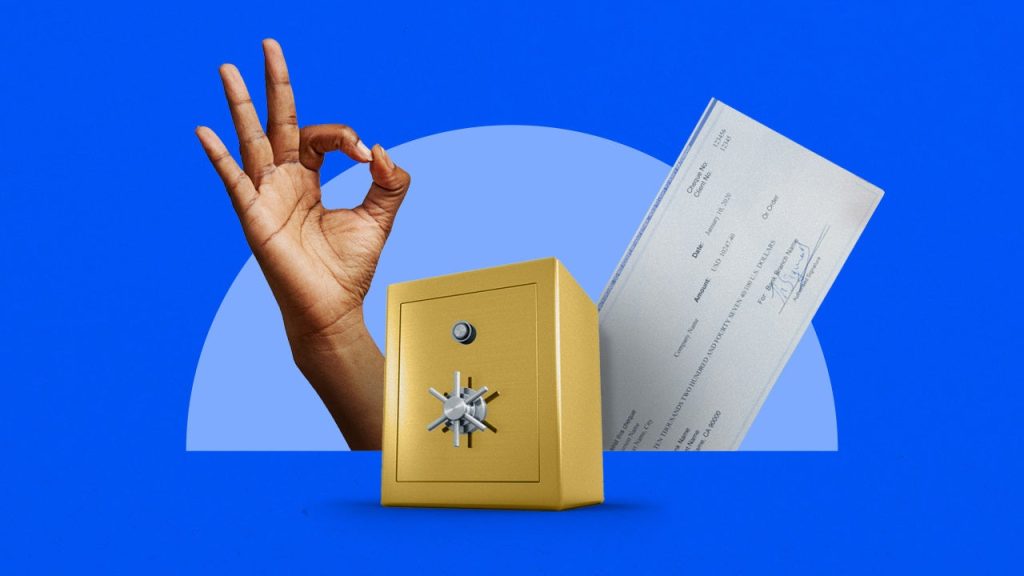For workers who are used to receiving their paycheck every other week, the calendar is aligned in November to give some biweekly wage earners a “bonus” third paycheck.
Having an extra paycheck in a month can really help if you’re living paycheck to paycheck. It can provide the financial means to help you establish, or add to, an emergency fund, pay down high-interest debt or help you pay for holiday expenses. And in some instances you’ll want to apply this extra paycheck toward multiple financial goals.
Say, for example, you earn $5,000 of income after taxes and withholdings each month — paid bi-weekly — and after you’ve paid all of your monthly expenses, you have $100 remaining. But in a month when you receive a third paycheck you’d have an extra $2,600.
5 smart ways to utilize an ‘extra’ paycheck
1. Start, or add to, an emergency fund
An emergency fund can help you pay for expenses when something unexpected happens. You can try to save a little at a time, perhaps through a split direct deposit whereby your employer deposits a portion of your paycheck into a savings account via direct deposit. Or you can use a third paycheck or a bonus to jumpstart an emergency fund.
You should consider a high-yield savings account at an online-only bank for this account. Stick with banks that are federally insured by the Federal Deposit Insurance Corp. (FDIC) and credit unions insured by the National Credit Union Administration (NCUA) so your money is protected – as long as it’s within their respective limits and guidelines.
Only 44 percent of U.S. adults have enough in an emergency fund to cover an emergency expense of $1,000 or more, according to a Bankrate survey conducted in December 2023.
2. Pay off high-interest debt
This current high-rate environment is great for savers, but rough on borrowers. Variable interest rates are sky high and taking out a loan now means you’ll also likely have a high annual percentage rate (APR). So paying down high-interest debt can save you a significant amount of money. And then you can use that money to take advantage of robust yields on top savings accounts, currently the highest in more than a decade.
Here’s another way to think about it: if you’re earning 5 percent APY in a savings account but paying 20 percent in interest on debt, your savings yield is only part of the picture. By paying off that high-cost debt first, not having to pay 20 percent in interest is a great financial accomplishment.
In one year, it would cost you $111 in interest to pay off a $1,000 balance on a credit card at a 20 percent APR. But if you didn’t have that debt, you’d be earning $50 of interest if you were earning 5 percent annual percentage yield (APY) for one year.
This means you can save a little and apply a little more to high-interest debt. And then at some point, your savings will be truly money you’re earning, rather than interest on your loan taking away from the accomplishment of having money saved.
3. Contribute more to a retirement account
Generally, you’re able to adjust the amount you contribute to a retirement account. Some people might want to increase their contribution percentage to a 401(k) during a month with an extra paycheck.
This could be a temporary increase, if your employer allows this. It would be even better for your retirement savings if you’re able to use this extra money to permanently increase your 401(k) contribution for the year, using the extra paycheck to help pay expenses throughout the year.
So if your annual salary is $100,000, a six percent contribution to your 401(k) would be around $231 per paycheck. Increasing your contribution to eight percent would be around $308. So the extra paycheck could cover that $154 monthly increase in your monthly 401(k) contribution, if you’re paid every other week.
You could also contribute money to an IRA or an IRA CD.
4. Make the extra check last throughout the year
Based on the example mentioned earlier, you could divide that additional $2,600 by 12 for about an extra $217 a month. In the meantime, your money can be earning interest in a high-yielding savings account until you need to use it.
5. Save for upcoming large expenses
Taxes and insurance are two types of expenses that can be very costly, and they make sense to budget for.
Property taxes might be billed quarterly, auto insurance might be billed bi-annually and homeowner’s insurance might be charged annually. So it can be helpful to set aside money for these irregular, high expenses. Payment plans might be available for some items too, but that could increase the cost with an additional fee for not paying the bill in full.
What are the three-paycheck months in 2024?
Those paid on a bi-weekly basis will have a three-paycheck month based on their first paycheck of the year.
| First paycheck | First three-paycheck date | Second three-paycheck date |
|---|---|---|
| Jan. 5, 2024 | March 29, 2024 | Aug. 30, 2024 |
| Jan. 12, 2024 | May 31, 2024 | Nov. 29, 2024 |
People paid weekly have five-paycheck months in March, May, August and November in 2024.
How budgeting can help you maximize the benefit of an extra paycheck
Budgeting can help you prepare for an irregular payment, be it a tax bill or an insurance payment. You can project when you’ll be billed for such expenses, and the approximate amount, though sometimes increases can be unpredictable.
“Even if you can’t divert the whole paycheck right away, if you’re budgeted to usually live on one fewer paycheck in a given month than what you’re going to get — over the course of the next month or so you should be able to transfer that entire amount toward a productive use like debt repayment or increasing savings,” says Greg McBride, CFA, Bankrate chief financial analyst.
Your extra paycheck could be larger if your employer has a benefit that’s deducted from your paycheck only twice a month, says Chris Snyder, director of eastern SMB operations at Paychex, a provider of payroll services.
“It really depends on how the employer wants to set up that deduction for that particular benefit that they’re offering their employee,” Snyder says.
Put your extra paycheck in a high-yield savings account at an online-only bank
Savings accounts offered at big, traditional banks generally don’t offer competitive yields. The national average yield for savings accounts is 0.58 percent APY as of the week of Oct. 14, according to Bankrate’s survey of institutions.
That’s why it’s worth considering allocating a portion of an extra paycheck to a high-yield savings account. Compare banks to find the right one for you.
Opening a high-yield savings account can work together with several of the strategies above. And make sure to go with an account that won’t have you paying fees, which could eat into your interest earnings. It’s easy to find an account with a high yield and without monthly service fees at some top FDIC-insured online-only banks.
Bottom line
A month with an extra paycheck can be a game-changer for your finances. Generally, there are only a couple times a year where you’ll earn more money than usual in a month — so consider making the most of this financial opportunity be it by building an emergency fund, paying off high-interest debt, contributing to a retirement account, divvying up the extra money to last you throughout the year, or saving it to pay for large, irregularly-timed payments.
Read the full article here
















